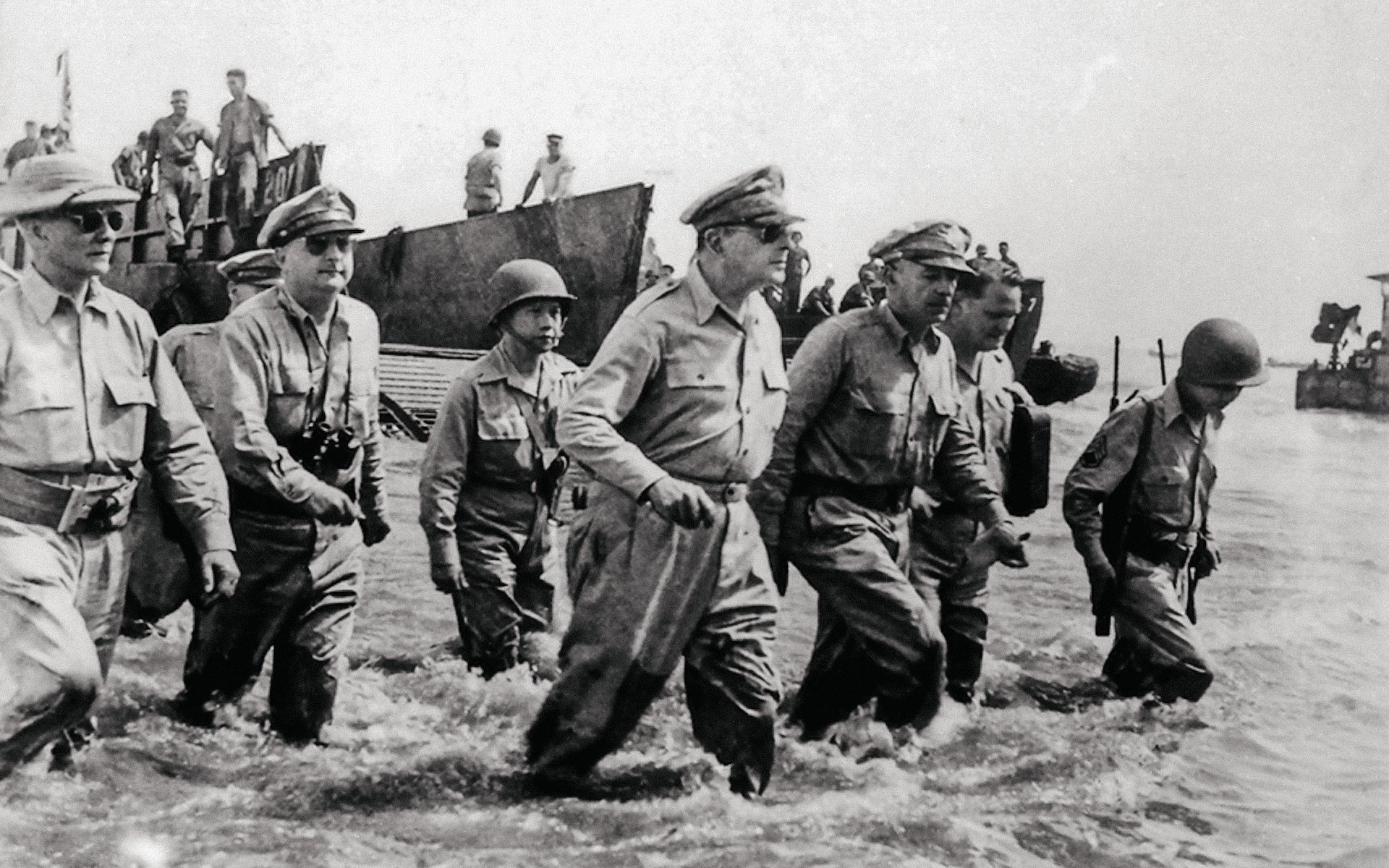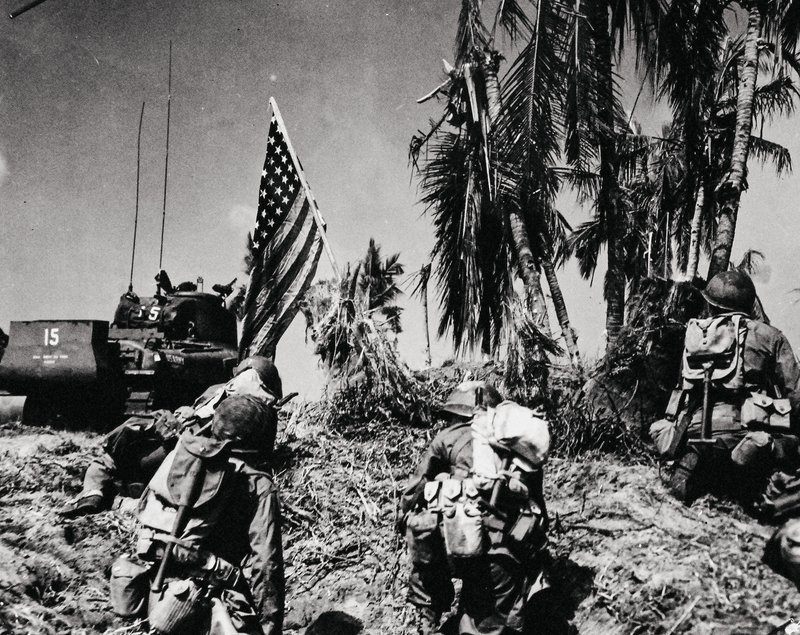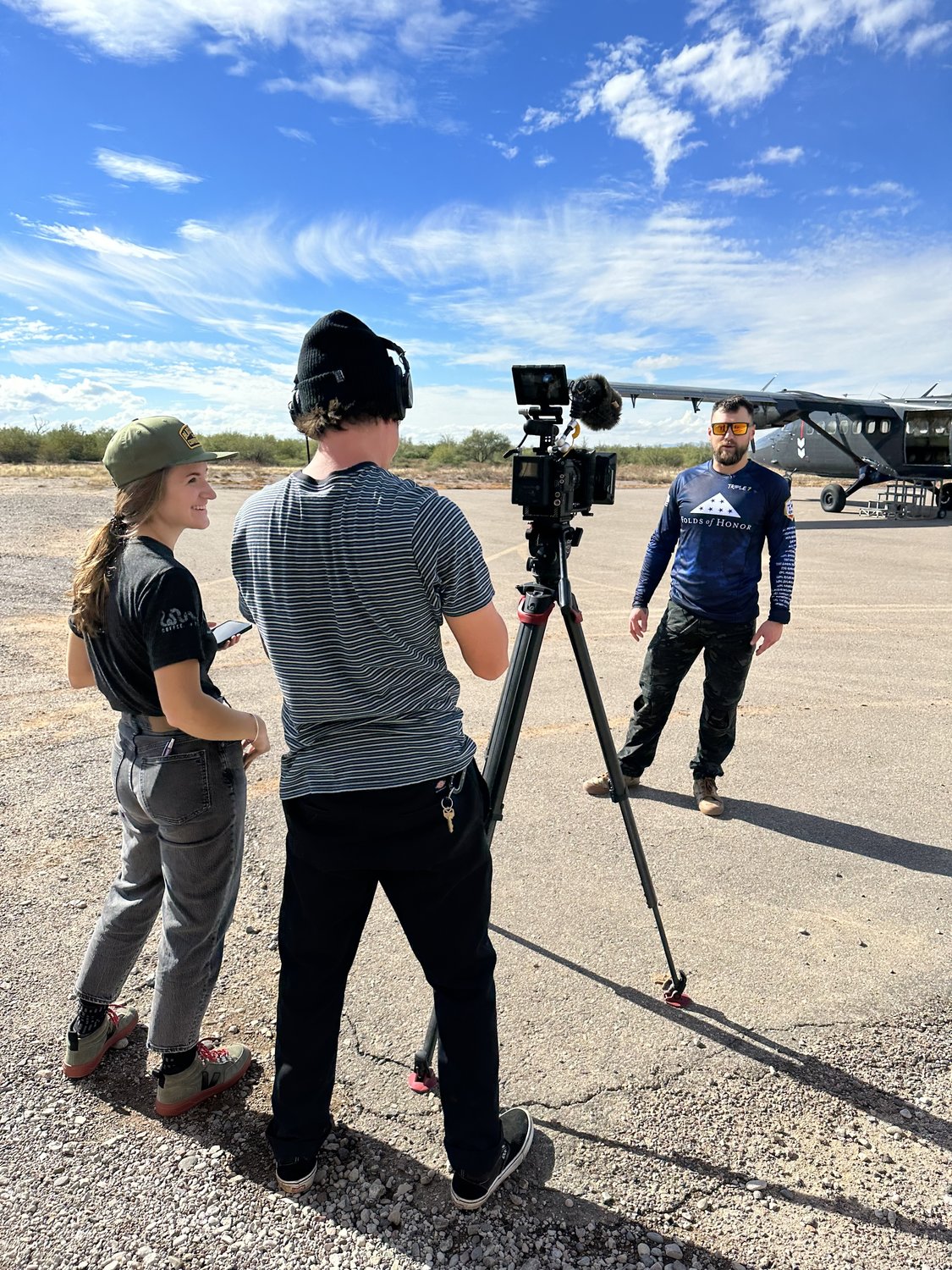
Gen. Douglas MacArthur wades ashore at the Philippine island of Leyte on Oct. 20, 1944. US Army photo.
Japan’s Dec. 7, 1941, attack on Pearl Harbor, Hawaii, wasn’t an isolated strike. Within 24 hours, the Japanese Empire had launched seven offensives in the Pacific theater, including an invasion of the Philippines, then a commonwealth of the United States.
At the time of the attacks, Gen. Douglas MacArthur was in command of approximately 120,000 American and Filipino troops in the Philippines, the same ones who would bravely attempt to repel the Japanese invaders.
Alas, it was a losing battle for the US Army Forces in the Far East. Within two weeks of fighting, the Japanese army was already closing in on the capital city of Manila. As a result, on Dec. 23, 1941, MacArthur ordered his troops to withdraw to the mountainous cover of the Bataan Peninsula, where they would dig in their heels and await relief that never came.
Fearful that MacArthur’s headquarters on the Philippine island of Corregidor would soon fall to Japan, President Franklin D. Roosevelt ordered the general to vacate the Philippines in March 1942. MacArthur complied and left for Melbourne, still holding out hope that relief might soon be on its way to the men he had left behind.

The first American flag raises on Leyte on Oct. 20, 1944, during the operation to liberate the Philippines. US Coast Guard photo.
However, with too few Allied troops in Australia, reinforcements weren’t on the table. Deeply distressed, Gen. MacArthur famously and publicly vowed: “I shall return.”
Henceforth, those three words would serve as the general’s mantra until he fulfilled his promise on Oct. 20, 1944. On that fateful day, MacArthur waded ashore on the Philippine island of Leyte, launching the US operation to retake the archipelago.
In a radio address a few hours later, MacArthur triumphantly declared: “People of the Philippines, I have returned!”
Although MacArthur finally fulfilled his promise, the moment and months that followed his beach landing at Leyte were bittersweet. Two-thirds of the men he had left behind two and a half years before hadn’t survived the Japanese occupation.
“I’m a little late,” MacArthur said, “but we finally came.”
Read Next: Behind the Photo: The Medal of Honor Recipient Who Led the Charge at Inchon

Jenna Biter is a staff writer at Coffee or Die Magazine. She has a master’s degree in national security and is a Russian language student. When she’s not writing, Jenna can be found reading classics, running, or learning new things, like the constellations in the night sky. Her husband is on active duty in the US military. Know a good story about national security or the military? Email Jenna.
BRCC and Bad Moon Print Press team up for an exclusive, limited-edition T-shirt design!
BRCC partners with Team Room Design for an exclusive T-shirt release!
Thirty Seconds Out has partnered with BRCC for an exclusive shirt design invoking the God of Winter.
Lucas O'Hara of Grizzly Forge has teamed up with BRCC for a badass, exclusive Shirt Club T-shirt design featuring his most popular knife and tiomahawk.
Coffee or Die sits down with one of the graphic designers behind Black Rifle Coffee's signature look and vibe.
Biden will award the Medal of Honor to a Vietnam War Army helicopter pilot who risked his life to save a reconnaissance team from almost certain death.
Ever wonder how much Jack Mandaville would f*ck sh*t up if he went back in time? The American Revolution didn't even see him coming.
A nearly 200-year-old West Point time capsule that at first appeared to yield little more than dust contains hidden treasure, the US Military Academy said.












